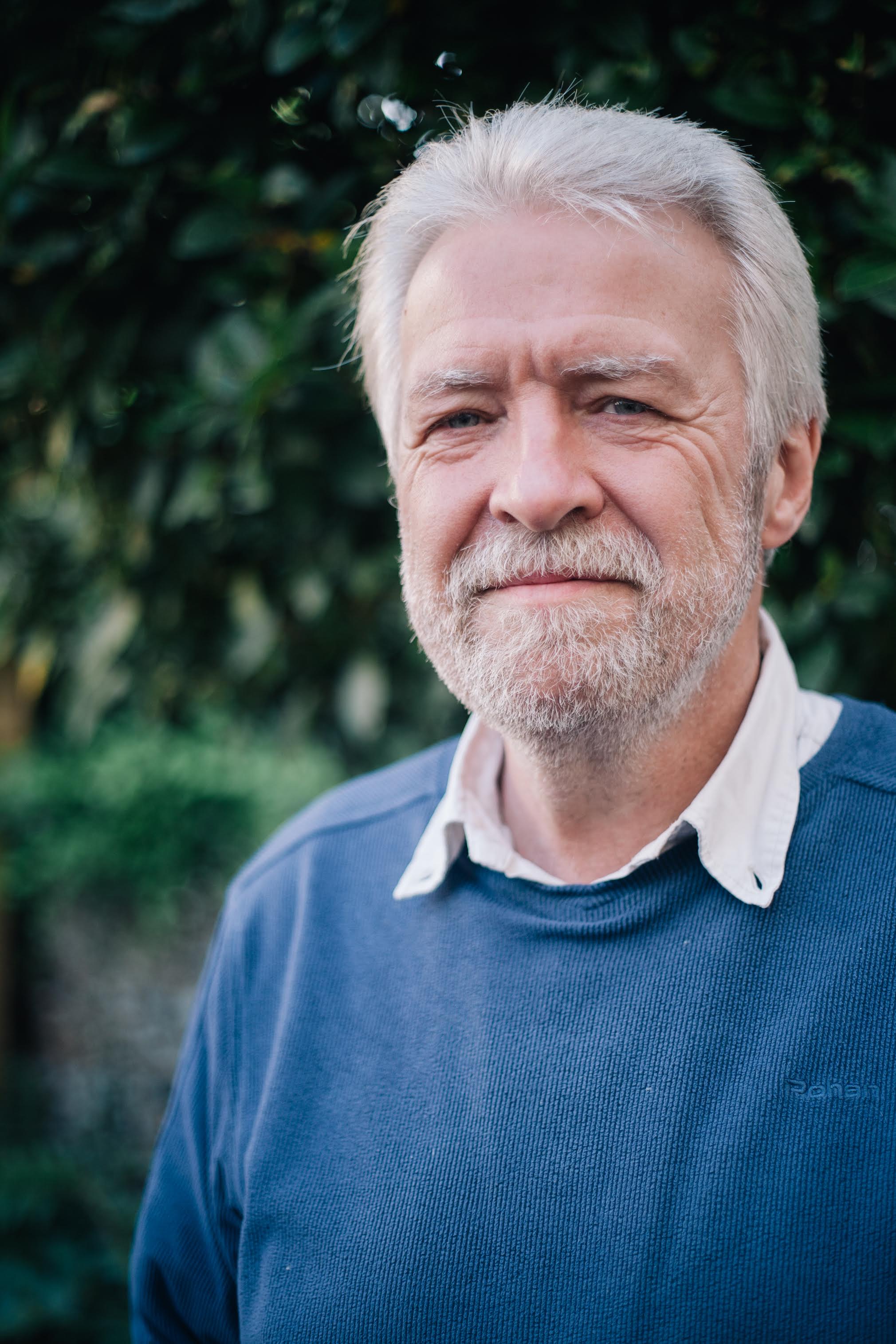Geoff Simkins Interview

Saxophonist and jazz educator Geoff Simkins has just recorded his latest album. He met with Charlie Anderson at The Verdict in Brighton where he performs on Sunday 18th June.
Geoff Simkins releases his latest album in June, a trio album with pianist Nikki Illes and bassist Dave Green. “Nikki and I have done some recording as a duo but we talked about doing some with Dave as a trio and that worked so beautifully that we decided to issue the album of those recordings. So we’ve still got the duo stuff which we’ll think about. But the trio went so well and everyone just loved being part of it so we’re all very happy with it. It’s great. It’s tunes that Nikki and I have played over the years and some newish material. Some of the arrangements we just came up with on the day. We tried to keep it as spontaneous as possible, as improvised as possible. Those were the criteria and I think we’ve succeeded.”
Simkins has been a jazz educator for nearly as long as he’s been a professional musician, some 40 years, and has always had a flexible approach to teaching and learning. “I suppose my approach to jazz education has changed over the years. I now think that the role of the jazz musician is to act as a sort of guide or mentor rather than a teacher. I think that in the end we have to learn ourselves. Jazz, and music, is trial and error and we have to experience it for ourselves. So I think that I can act, hopefully, as a guide, as an advisor, somebody who can point the way for people. And that’s what I hope I do, certainly in my classes and the Saturday classes which I’ve put on for a number of years. And when I visit conservatoires, the Royal Academy and the Welsh College of Music, I think that approach is the one that I go for now.
“Jazz, for me, is still an aural tradition, it’s still a sort of folk music and I think that sometimes the formal, academic side of jazz education, it’s not that it’s counter-productive, but I’m not sure that it’s entirely the best method for passing on the tradition.”
“It’s still a folk music. We still have to copy our heroes. And then find a way of our own, based on that. We stand on the shoulders of giants, as people say.”
“I’m pleased that young people are playing the music and developing it and changing it. The music has to develop and change, otherwise it just stagnates. So I’m not an advocate for the good old days, by any means. I’m happy that musicians are actually interested in what I do, and find it relevant. That’s really encouraging for me, having played all my life, that I go to colleges, and students still want to learn; they still want encouragement and advice, that’s great. So it’s a pleasure for me and actually a privilege to be able to pass that information on.”
“I think we learn best by learning from others, firstly by imitating, and then we mould that into our own language. That’s what all my heroes have done.”
Simkins’ list of musical heroes has changed over the years. “When I started to play music I was a drummer so I was very interested in archaic New Orleans music. So I was listening to Baby Dodds, Cie Frasier, and a lot of the New Orleans players. Then I became interested in the music of the 1920s, particularly when I switched to saxophones, so the music of Bix and Frank Trumbauer, Adrian Rollini, Earl Hines and Armstrong of course. But the thread that has run through my musical interests has generally veered towards the cool or reflective school of improvising, which is probably why I became so interested in the Lennie Tristano, Lee Konitz, Warne Marsh approach, both to playing and teaching.”
“And there are many contemporary players who have followed that path and learnt from it. Saxophone players: first it was Benny Carter, then it was Lester Young, then Charlie Parker who I loved but didn’t necessarily try and emulate, Paul Desmond for a bit, then Lee Konitz. But I’ve listened to many more contemporary players, particularly ones that my students suggest. I hope that my ears and mind are still very much open to the new developments. I’m not an old fig but I don’t think my playing, stylistically or philosophically, will change very much, but hopefully it continues to develop.”
When asked about the new generation of up and coming jazz musicians, Simkins is optimistic and upbeat. “There are some wonderful musicians. The technical standards, I’m sure, are higher than they’ve ever been, theoretical knowledge is greater and deeper than it’s ever been. Whether that makes better art, I don’t know. I don’t think it’s dependant, necessarily, upon that. We need enough technique to be able to express our ideas clearly and we need to cultivate our imagination and our creativity and I think we best do that by listening to as many of the other great players who have already done it, so that we can find our own path. The standard is very high, particularly at music college.”
With the New Generation series of gigs at The Verdict, Simkins is similarly upbeat, “I think it’s great that The Verdict has this policy of encouraging younger bands to come and play on a Friday night, so that you start to maybe get, not just people turning up on the night that are their favourites but giving other musicians and other bands a listening. I think that’s a great policy and all credit of course to Andy Lavender, Jack Kendon and Eddie Myer for pursuing that.”
Like a lot of musicians in the current climate, Simkins is concerned about audiences. “Not so much for me but certainly for younger players, for people just starting out on the road. To put it delicately, it’s the generation gap (often between the age of the musicians and the age of the audience) and certainly, young musicians tell me that they want more young people to be listening to the music, and not just other musicians. There is a tendency I think for it to become a bit inward-looking, where the audience are just other young musicians listening to other young musicians doing the same thing. I don’t know what the answer is. I think it’s a concern.”
“I played down at a jazz club in Cardiff when I was visiting the Royal Welsh College of Music & Drama only two weeks ago with a young bass player and a young drummer, Chris Hyson and Lloyd Haines, both wonderful players who graduated from college four or five years ago. In the local club there may have been 60 people and I would think at least half of the audience were other young musicians who were either at college or hoped to go to college or had just left college. And I’m not sure that that’s sustainable.”
Simkins is also concerned about the way that the arts in Britain are perceived. “One of my hobby horses has always been that I think generally that the arts in Britain are seen as being too ‘other’, something different from everyday life. And I think that there’s always been some sort of barrier between the general public and ‘the arts’, whether it’s jazz, poetry, painting or whatever. And I don’t think much has been done to dispel that and I think that would be a huge help if we could somehow make music and dance and poetry, writing and the theatre just part of everyday life and not something which has to be discussed, explained and criticised. I think that’s a major issue in life, generally.”
“I think that would be something that young musicians, I guess, will have to address and although I’m glad that people of my generation still love to come out and listen to the music, we certainly need an influx of new, young audience members.”
Simkins is a firm believer in lifelong learning and still practices diligently. “The two critical things for me are sound and time and I still work every day at those things, particularly sound. And some of the exercises and studies I use for practising time, I also find useful in teaching. So I have to be able to master those before I can try and tell other people how to do them! That’s interesting, but I practice improvising. I practice a lot of what Warne Marsh used to call ‘slow improvising’, and that is to set the metronome at slow tempos (e.g. 60-80 bpm) and then improvise over familiar or unfamiliar chord sequences so that I can think and compose in real time. So the idea is to continue to practice, to be able to really improvise in the moment. That’s the sort of holy grail, for me, not for everybody but for me it is. And that’s what still excites me about playing, after 50 years of doing it. And actually, that’s one of the things about the trio with Nikki and Dave, it’s a great platform for doing that because they’re so creative, supportive and sympathetic musically that it gives all of us a chance to really try and improvise both individually but also as a group and that’s really thrilling! I wouldn’t do anything else.”
Simkins is similarly upbeat looking back at his long career. “I’ve been incredibly lucky. I’ve made a living playing jazz, for most of my adult life. It’s like being a professional poet – it’s a difficult living to make. So I’ve been very fortunate. And to be playing with such great musicians, particularly with the trio but also so many great musicians live in Brighton, so it’s a good place to be.”
Geoff Simkins performs with Nikki Illes and Dave Green at Cadogan Hall, London on Tuesday 6th June and at The Verdict, Brighton on Sunday 18th June.
[Photo: Alex Bonney]



